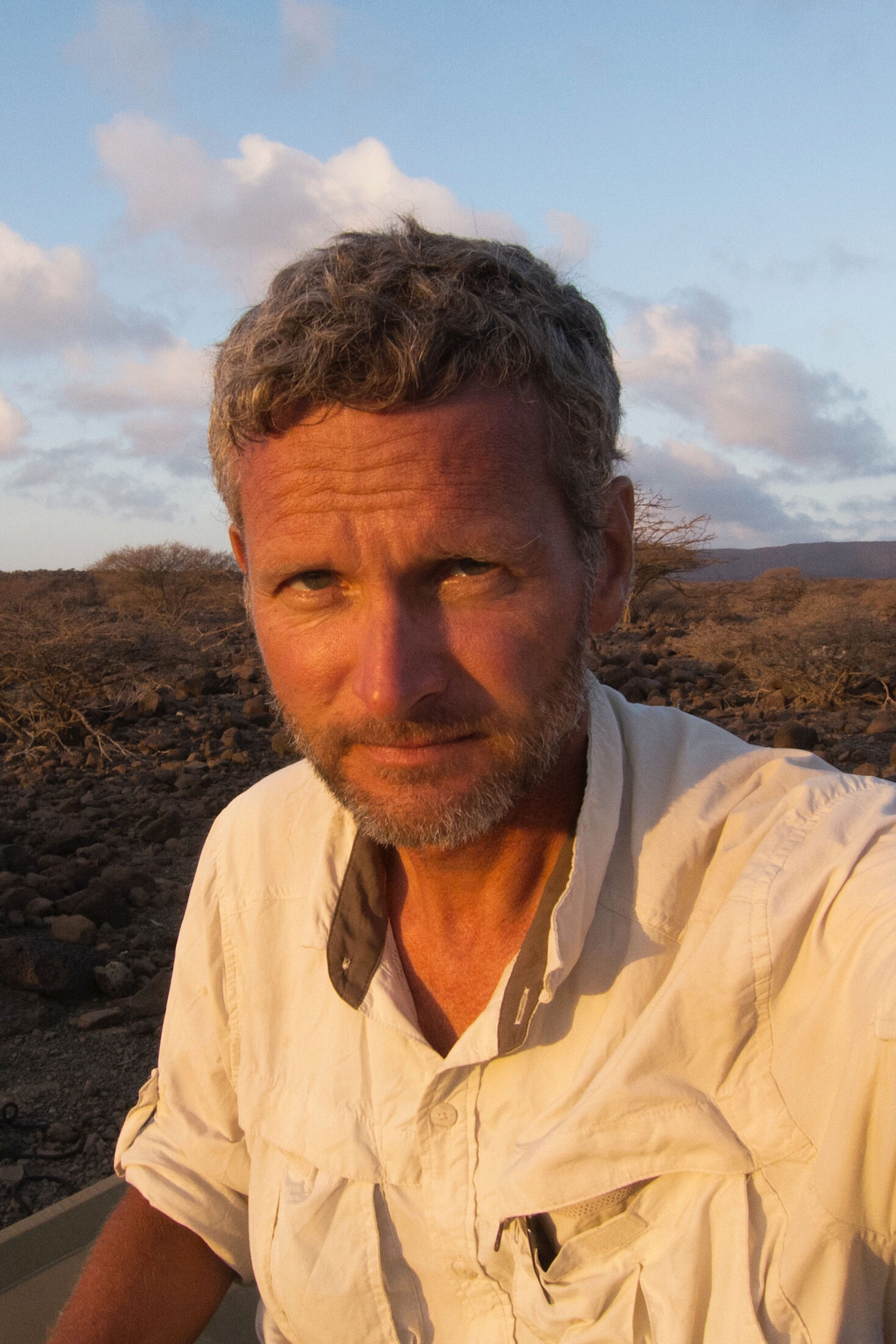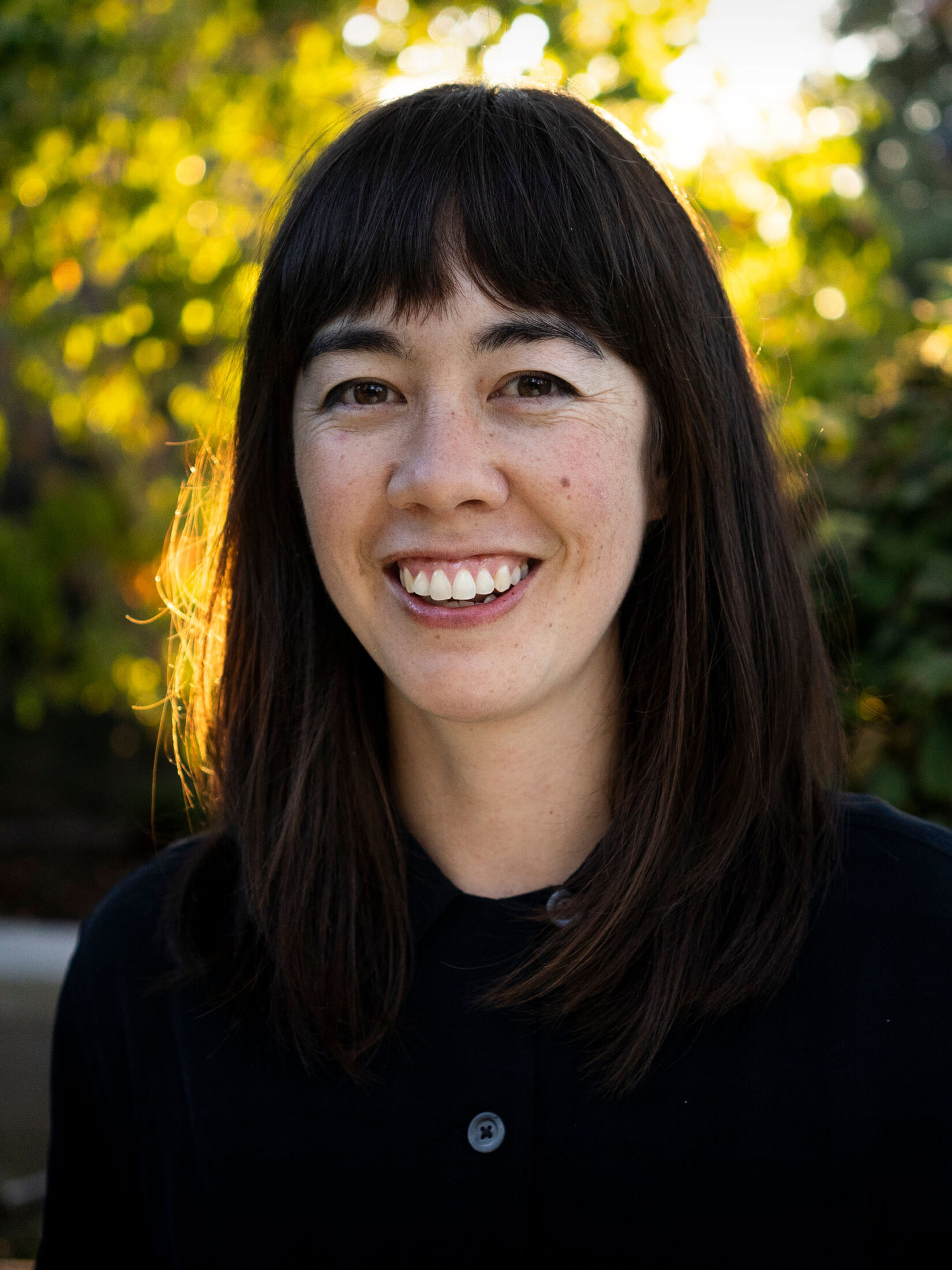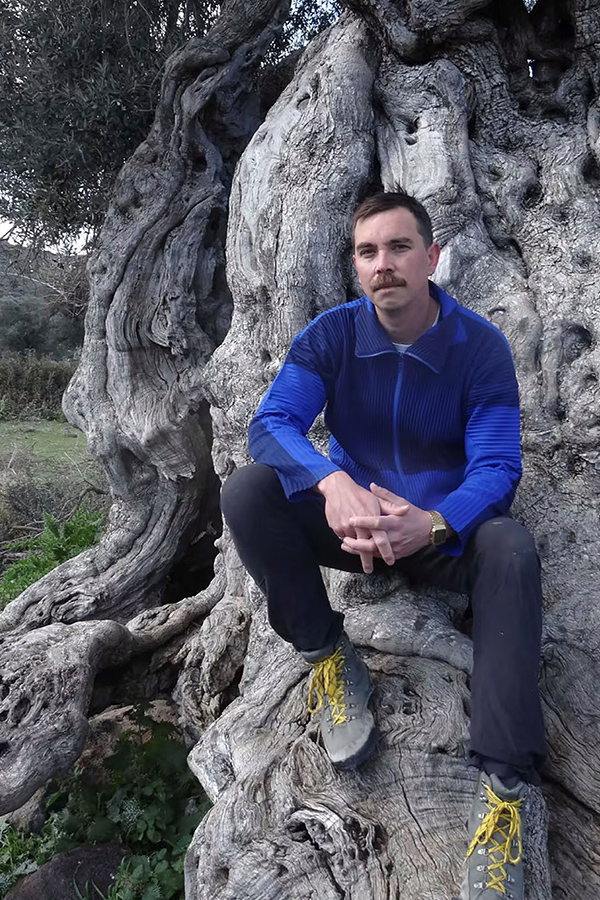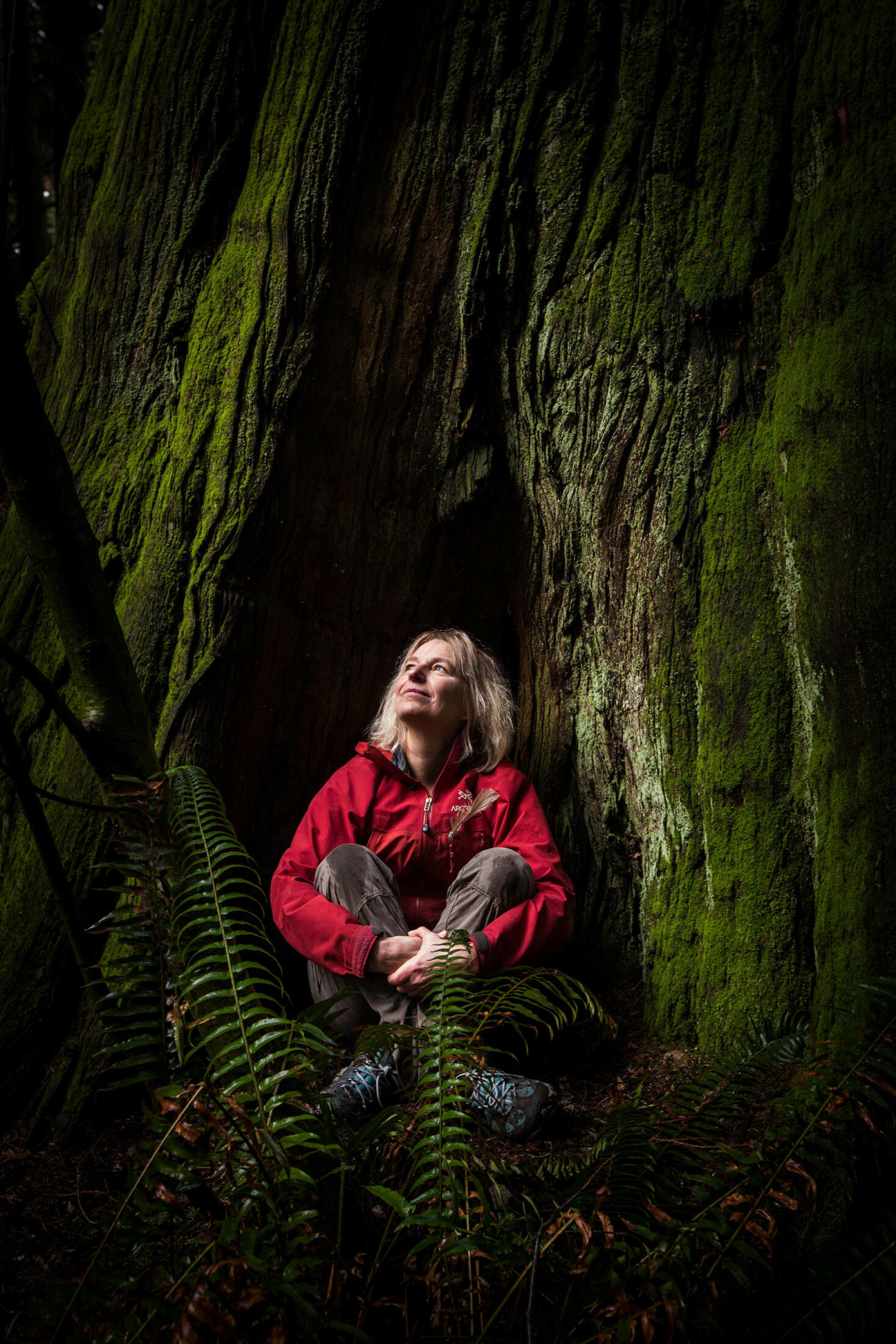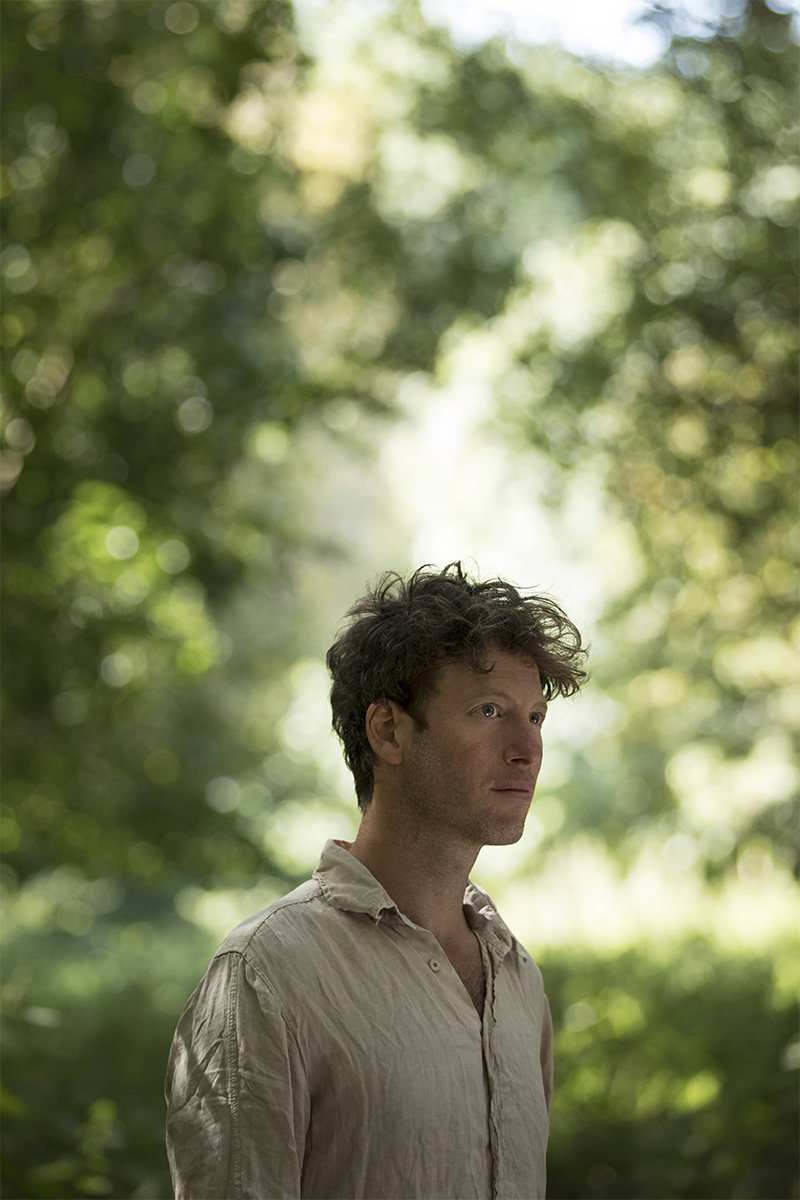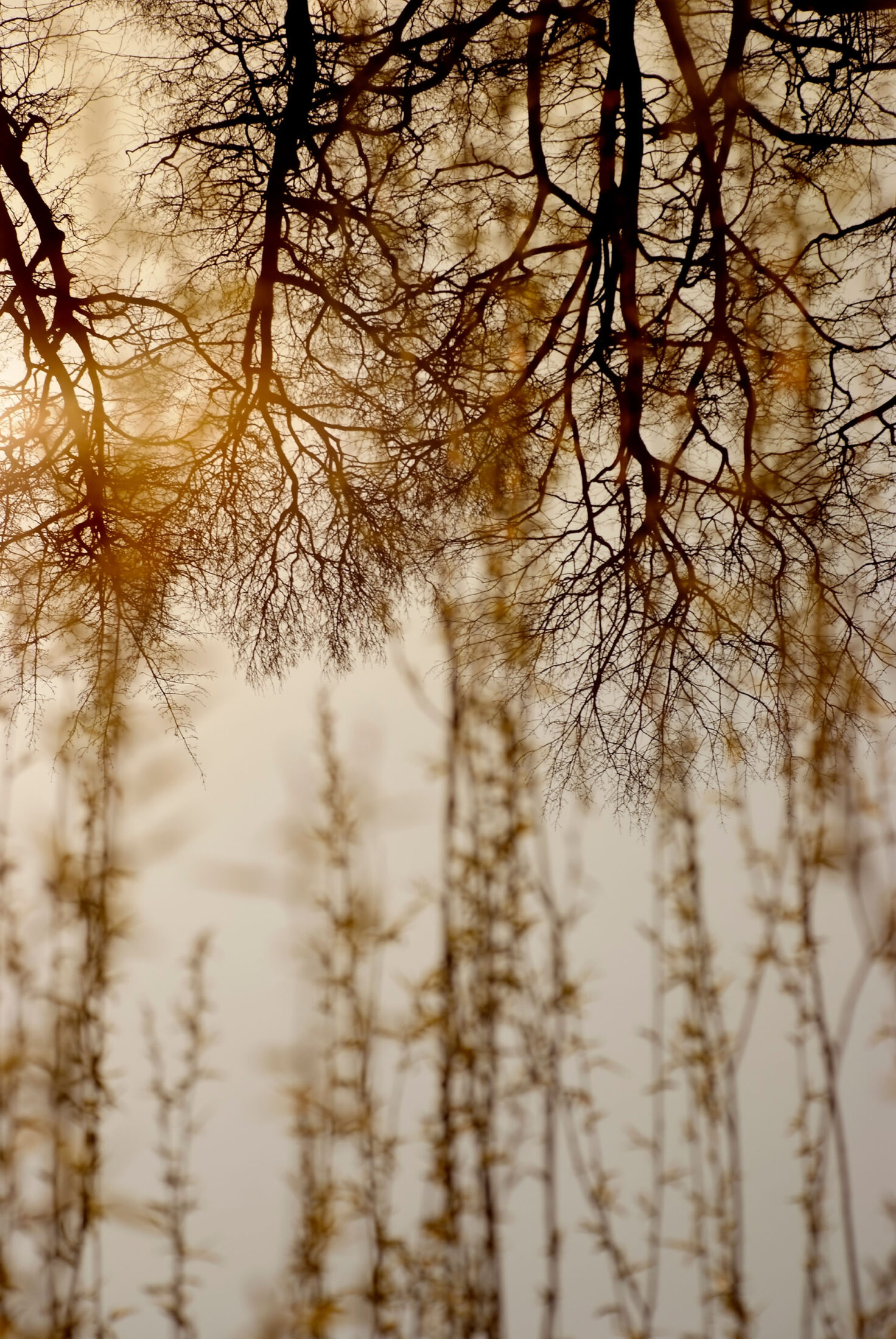
An Offering of Remembrance
Emmanuel Vaughan-Lee is an author, Emmy- and Peabody Award–nominated filmmaker, and a Sufi teacher. He has directed more than twenty documentary films, including Taste of the Land, The Last Ice Age, Aloha Āina, The Nightingale’s Song, Earthrise, Sanctuaries of Silence, and Elemental, among others. His films have been screened at New York Film Festival, Tribeca Film Festival, SXSW, and Hot Docs, exhibited at the Smithsonian Museum and London’s Barbican, and featured on PBS POV, National Geographic, The New Yorker, and The New York Times Op-Docs. His new book, Remembering Earth: A Spiritual Ecology, is forthcoming from Shambhala in summer 2026. He is the founder, podcast host, and executive editor of Emergence Magazine.
Given at St. Ethelburga’s Centre for Reconciliation and Peace in London in November 2023, this talk by Emmanuel Vaughan-Lee speaks to the possibility of profound inner transformation amid the great changes engulfing the Earth. Exploring the need to step away from a humancentric paradigm and towards a remembrance of the Earth as a divine being, Emmanuel asks: As so much falls away, what can we offer to the Earth? How can we place Earth back at the center of the story? What opens when love once again becomes present between us?
Transcript
This evening I want to speak about shifting landscapes. Both the outer shifting landscapes that are engulfing our world and the inner shifting landscapes that are engulfing our hearts and our beings. The stories in the pages of this volume we have put together speak to these changes, speak to these shifting landscapes. The stories are within the words and the images, but they are also at the margins, in what is not said—this great, great change that is engulfing our world, that each year grows greater and greater. This year alone is the hottest on record. Vast swathes of Canada have burned, engulfing North America and Europe with smoke and debris of lost lives and brethren. The salmon have all but disappeared in Alaska. And these are just a taste of what has happened, a taste of the shifting landscapes that have engulfed our world—too great to comprehend, one might say. But I don’t want to talk about those outer shifting landscapes this evening. Because as great as they are, and as much as they need our attention and they need our response, I want to speak about the inner shifting landscape that is demanding our attention perhaps even more than what is unfolding around us, that we can see with these eyes.
Because, for me, the real story that is unfolding beneath the surface is the cry to decenter ourselves from the narrative that has engulfed our world and brought on these great changes and these shifting landscapes; to decenter the human from the story, because that story has gone awry; to decenter ourselves from this narrative that we have woven at great cost. And to me, the real shifting landscape that must unfold is within. It is an inner change where the human being is no longer the central character in a play that has gone on for far too long; where the human being is no longer at the center, because the human being never belonged at the center. Something else belongs at the center. Our hubris that we are in control, our arrogance that it is our domain, has led to these monumental, mythic changes that are gripping our world, that are changing our climate, that are raising our seas. And we must remove ourselves from the center of that story so that we can begin to set it right. But if we decenter ourselves from the story, where do we turn? To whom do we turn? For me, there is only one answer.
We turn towards the great, divine being that is our Earth, that is our Mother, that is our kin, that is, in truth, ourselves. Because we are part of her, although we have forgotten. We must turn towards her and shift our gaze away from ourselves towards who really is at the center, for she is the center. And when we do this, when we turn our head from here to there and embrace this great being, this great Earth, this great, living world and all she holds within her, we step away from being at the center of the story and step into a very different space. One might call it a liminal space—a space between the worlds—between the world of a humancentric paradigm that has come to the end of its days, even though it is often hard to recognize that. We step into a space between the worlds, where one world comes to an end and another one beckons us to begin to engage with it. A new world is emerging from the ashes of the old one, even if it is very nascent and hard to see, even if it is invisible at times. And we step into this space because we let go of the human being at the center of the story and turn towards this great, great being who is at the center of the story, who is the story. We turn towards her.
There is a wonderful line by the poet Natalie Diaz in this volume that I like very much. She writes, “We must go beyond beyond to a place where we have never been the center, where there is no center—beyond, toward what does not need us yet makes us.” For she does not need us. No. We can go and she will still be here. But she wants us, and there is a difference. She wants us to remember who she is—who she really is. She wants us to live our lives in remembrance of who she is—this great, great being. But how do we orient ourselves in this liminal space between the worlds, this space where one world comes to an end and another world has yet to begin? How do we orient ourselves in relationship to this great being that is our Earth, that is our Mother? It is not just good enough to turn from here to there—that is the first step. But how do we orient ourselves? How do we hold ourselves in relationship to her?
And here I must turn to her as the example and let her be the mirror that we can mimic. Because everything that she does is an offering. Every second of every minute of every hour of every day, she offers her abundance, her life. Without her we cannot breathe. Without her we cannot eat. Without her we can do nothing. Nothing happens without her offering and it exists constantly—this flowing of abundance from her into this world. This offering does not play by our rules. And as much as we try to quell this offering and stop this offering with our hubris and our human-centered ways of being, she continues to offer and offer and offer and offer, because she is a constantly flourishing offering of life. And so I say we turn to her as an example of how to be. And we ground our way of being in this liminal space, in this space between the worlds, as we look towards her from a space of offering, just as she offers to us.
Any real offering—if it is done with authenticity and sincerity from the depths of our being—is not about us. It is about something else. It is about the other. An offering from the depths of our being with sincerity is always for the other. And so we offer ourselves, just as she offers herself. We root our being in offering with the hope that we do not slide back into our forgetfulness and our humancentric ways of being, which are lurking around the corner always, trying to lure us back in, individually and collectively. We take that first step. We turn away. We look towards her. We offer ourselves to her just as she offers herself to us.
But still that is not enough. What do we offer? What do we offer her? For me, we start with forgiveness. Forgive me, great Mother. Forgive me for what I have done, for how forgetful I have been. Forgive me, forgive me. Forgive me for my complicity in what I have done, for what I have allowed to unfold, for what I have watched being done to you. And we ask for forgiveness with humility: I know not what I have done, but I know now, and I ask for your forgiveness. And I don’t just ask once or twice—I ask daily, because each day we forget. Each day we must be reminded of what she gives us. So we must ask for forgiveness, so that we begin to bow down with humility. I am so, so, so sorry for what I have done. For me, that is the first step, the first real step of an offering towards her.
Then I would offer my recognition of her. And here it becomes a beautiful journey, because the ways that she offers herself to us, that demand our recognition are so myriad they cannot be counted. There are too many ways to even comprehend, because she is present in everything—in every rising of the sun and rising of the moon and every passing cloud and every tree and every blade of grass, she is present. And she does not need us, but she wants us. And she wants us to recognize who she is in the smallest of ways—the greeting and acknowledgment through the senses—and the most profound and miraculous ways, where we are engulfed in a beauty that can never be described. We soak it in and we recognize it as an expression of her, as an outpouring of her. And this can become the central defining way we live our lives, if we allow it—to bring our recognition of this great being that is our Mother to the center of our lives. Not us at the center, but the recognition of her at the center in all the forms she takes. We wake up and we are given the opportunity to remember her, to recognize her. And we go about our day and there, and there, and there are opportunities. Everywhere. Everywhere you turn, there she is. Her abundance—it’s overwhelming. And there is no excuse. Once one has turned away from being at the center and looked towards her and said, “I offer myself to you, just as you offer yourself to me,” there is no excuse to not recognize her in all the ways she makes herself known. Because each time we choose not to recognize, we forget and we are drawn back to being at the center of the story. If we are going to wake up to who she really is, then she demands our attention. She demands our focus, our perseverance, our commitment—all of those things and more, she demands. And the more we recognize her, the more our ability to be in a space of attentiveness to her changes. It is as if the senses which only used to function in their physical form—our ability to see, our ability to hear, our ability to smell, to taste, to touch—they change as the outer senses make way for the inner senses. And then the eye of the heart and the ear of the heart—our body can feel her body through the act of recognition. It changes our ability to be in a space of attentiveness. And it changes our ability to notice what is happening beyond the headlines, to actually perceive it with the full capacity that we have as human beings—with our physical eyes and our metaphysical eyes, our physical ears and the ears within. And then what we see and, more importantly, what we feel shifts and changes.
The news we hear is no longer just news but tremors we feel in our very being, ripping us apart just as it rips her apart. Tremors in our very being, not headlines. And this will change us. When we feel what she feels, even if the capacity for us to absorb what she does is but a hair compared to her experience, it will change us. It will break us open, as it should. It will leave a mark, as it should. And out of our beings there will flow grief, there will flow pain, desolation, as there should. Because that is what she feels, and we should feel what she feels if we are going to truly leave behind this world where we have played the central character for far too long and embrace her. We have to feel what she feels. We have to feel what we have done so that we can be changed and we do not go back. So that we can be broken open and feel what she feels so we do not go back to our old ways. So that we can truly bear witness in the deepest part of our being. It is not good enough to bear witness with these eyes alone and these ears alone and to feel sadness and feel disdain. We must feel deeper and deeper and deeper until it begins to rip us apart so that we remember and we hold inside of us what has happened. Because that is part of what it means to ask for forgiveness, at least to me. Forgive me. Forgive me for what I have done. Let me feel what you feel, so I will know, so I will not forget again.
And it will hurt, and it will hurt, and it will hurt. But if we truly offer ourselves, then we can bear it. Because the human heart and the human body, when it is given in a space of offering, is much larger than we realize, has a greater capacity than we realize. It can hold so much, and this pain and this suffering and this grief, it awakens something so ancient inside of us if we let it, if we allow ourselves to feel it and let the vulnerability wash over us. Because when one feels that pain and one feels that cry of the Earth, one feels vulnerable, just like she is vulnerable in that moment. And that vulnerability is like a key, always a key, and it opens a deep ancient love that exists between us and our Mother, this great divine being that is our Earth. And while we may have felt that love before, and the recognition, and the beauty, and the joy that can come from her offerings, when we feel her pain, that love has a different quality. A deeper quality. A more potent quality. And it is that love that she wants us to awaken inside of ourselves, to return to that primordial love that existed from the beginning that we forgot and covered over with ourselves and images of ourselves. That love is the most wondrous thing because it is real, and it taps into the most primal essential aspect of who we are as human beings, and connects us to her through the conduit of relationship that exists beneath the physical, beneath the atoms that we all share. And when that love is awakened in us, then things really start to change within us, then our landscapes within truly shift because we are sharing a different relationship with her now than we ever have before. The blood that runs through our veins becomes the blood that runs through her veins. A gushing river and the blood in our veins are the same at that point, because the love flows in the same way between them—the love that has been awakened inside of us.
And when that love is present in our lives, the way that we are able to be in relationship to her, to recognize her, to offer ourselves to her, to be in a space of forgiveness towards her, it changes, it deepens. We realize that before it was just skin deep, it barely cracked the surface, because now we are in a different way of being with her. There is love present—a primal, ancient kind of love that makes human romantic love trivial by comparison. Trivial. It is deep. It is ancient. It is felt in the core of your bones and the depths of your heart. And once that love is there, it does not go easily. Then something truly shifts and every action we take will be imbued with that love. And then the difference between the sacred and the profane falls away, because every act will become a sacred act when it is imbued with that love. You walk down the street imbued with that love and that remembrance of her and it flows through your being and your blood. Every act becomes a sacred act of remembrance, because how could it not be when that love is inside of you at the deepest level. And then your prayers change, your silence changes. What some perceive as inaction—which is not really inaction—changes because that love is present. There is a different quality of being that exists because we have become a different quality of being, because we are in relationship with the great being in a different way, in a deeper way, in a real way. And a space begins to emerge inside of us—a space that can hold us in a different way, that can hold the pain, that can hold the grief, that can hold the offering. What was ephemeral suddenly is no longer so. It is lasting. A space has emerged from the love and the grief and the recognition and the forgiveness that are all parts of the offerings that we make, in deference to her.
And this space, it is like a vessel. It holds the sacred nature of creation inside of it. The remembrance of who she is and our relationship to her. That space is like a church or a temple where she is recognized in the smallest and largest of ways. That space is a refuge at a time when we need refuge. If we are to keep the sacred nature of creation, this thread of remembrance, alive through a human way of being, then we will need spaces that allow us to do so. Otherwise, it will fall away just like so much else will fall away in the coming decades. We need spaces, like this is a space of refuge and this is a space of offering. But we can be a space of refuge and we can be a space of offering if we allow ourselves to be transformed, if we allow ourselves to turn away from a world where the human being is at the center, towards her; allow this love to come alive in us through the grief that we feel. We can become a refuge and we can become a space. And then a thread can be woven between the world that is dying, the world that is coming undone, and the world that is to emerge in the future. A note of remembrance, the sacred nature of creation, does not have to be forgotten; it can exist inside of us. And these spaces do not exist in isolation, just like she does not exist in isolation. These spaces, they recognize the other spaces that exist within human beings, within communities. And when I say recognize, I mean recognize on a spiritual level, and then that individual thread becomes woven with the other individual threads and a great tapestry can be woven from these different spaces—spaces comprised of our love towards her, offered towards her.
These spaces, they serve many purposes. The purpose in the present is to keep this note of remembrance alive so that in this era of forgetfulness there will be—even if it’s just a few of us, a few spaces—enough to keep that note singing. As Brecht says, “There will be singing in the dark times.” But that singing must come from within the space we hold in deference to her, in honor of her, in offering towards her. And these spaces are also for the future. Because if we only hold this space so that something can stay alive in the present, then we are being shortsighted, because the world that is coming into being is going to come into being slowly and not on our timeline. It’s going to take a long time for this empire of late-day capitalism to die. Longer than any of us would like. And these spaces can hold something for this time of transition for the future. We must hold them for the future, just as they used to build the cathedral stones one generation after the other for the future; just as they used to think of each action taken with seven generations in mind for the future. The spaces that exist inside of us, they are not only for us now, they are for the future. And these spaces, the way that we nurture them is through the daily, simple recognition of who she is. If we don’t do that then the spaces, they will lose their potency and slip through our fingers. They will slip away unless we take the lessons we have learned and we apply them each and every day, as we turn towards her and offer ourselves to her over and over and over and over again, and then we offer that space—because it can never be about us. “We must go beyond beyond to a place where we have never been the center, where there is no center—beyond, toward what does not need us yet makes us.”
